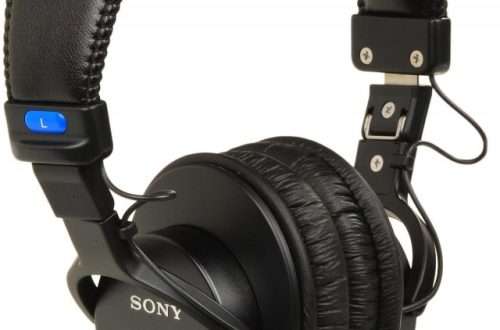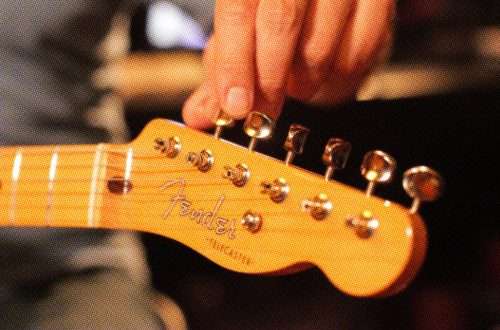How to enter a music school?
Contents
- Do I need to graduate from music school?
- How to study: free or paid?
- How to enter a music school? What needs to be done right now for this?
- Don’t miss open day
- How to prepare the ground to enter a music school without any problems?
- How do applicants become students?
- What to do if you didn’t pass the competition?
- A GIFT FROM OUR SITE FOR BEGINNING MUSICIANS
In today’s post we’ll talk about how to enroll in a music school. Let’s say you are finishing your schooling and intend to get some good education. Is it worth going to a music school? I recommend that you think seriously about this, since you will have to spend four whole years within the walls of the school. I’ll tell you the answer for you: you should only go to a music school if music education is vital to you.
How to enter a music school? Many people are interested in the question of whether they need to have a certificate of completion of a music school for admission. Let’s face it, everything will depend on the chosen specialty.
Do I need to graduate from music school?
Departments at the music school that are accepted without primary musical education: academic and pop vocals, choral conducting, wind and percussion instruments, as well as the department of string instruments (double bass players are accepted). Guys are especially welcome, because, as a rule, in all regions there is an acute problem of a shortage of male personnel – singers in choirs, wind players and low string players in orchestras.
If you want to become a pianist, violinist or accordion player, the answer is clear: they won’t take you to school from scratch – you must have, if not a background from a music school, then at least some kind of technical base. True, such high requirements are imposed primarily on those who want to get into the budget department.
How to study: free or paid?
For those who are ready to gain knowledge for money, it makes sense to inquire about the possibility of enrolling in these departments from a competent person (for example, the head of the department or head teacher). It is likely that you will not be denied paid educational services. No one refuses money – so go for it!
I want to reassure those who have a passionate desire to learn these particular professions, but do not have the extra financial resources to do so. There is also a great opportunity for you to get what you want for free. You need to apply not to a music school, but to a pedagogical college with a music department. As a rule, there is simply no competition for applicants there, and everyone who submits documents is accepted as a student.
There is a widespread misconception among applicants that music education in a teacher’s college is of worse quality than in a music school. This is complete nonsense! This is the conversation of those who have nothing to do and who like to scratch their tongues. Education in music pedagogical colleges is very strong and quite broad in profile. If you don’t believe me, remember your school music teachers – how much they can do: they sing in a beautiful voice, lead a choir and play at least two instruments. These are very serious skills.
The only disadvantage of studying at a pedagogical college is that you will have to study not for four years, as in college, but for five. True, for those who come to study after the 11th grade, they sometimes give a discount for one year, but if you come to study from scratch, then it is still more profitable for you to study for five years than four.
How to enter a music school? What needs to be done right now for this?
First, we need to decide which school or college and what specialty we will enroll in. It is better to choose an educational institution according to the principle “the closer to home, the better,” especially if there is no suitable college in the city in which you live. Choose a specialty that you like. Here is the usual list of training programs offered in schools and colleges: academic instrumental performance (various instruments), pop instrumental performance (various instruments), solo singing (academic, pop and folk), choral conducting (academic or folk choir), folk music , theory and history of music, sound engineering, art management.
Secondly, by asking your friends or visiting the website of the chosen school, you need to find out as many details about it as possible. What if there’s something wrong with the hostel or something else (the ceiling is falling in, there’s always no hot water, the sockets in the rooms don’t work, the watchmen are crazy, etc.)? It is important that you feel comfortable during your study years.
Don’t miss open day
On the next open day, go with your parents to where you want to go and evaluate everything in person. Feel free to stop by the hostel and ask for a mini-tour.
What does an open day program usually include? This is usually a morning meeting of all applicants and their parents to meet with the administration of the educational institution. The essence of this meeting is a presentation of the school or college (they will talk about general things: about achievements, about opportunities, about conditions, etc.), all this lasts no more than an hour. After this meeting, a small concert is usually organized by the students. This is always a very interesting part, therefore, I do not recommend that you deny yourself the pleasure of listening to what the students and their teachers have diligently prepared for you.
The second part of the open day is less regulated – usually everyone is invited to undergo free individual consultations in any specialty. This is exactly what you need! Find information at the stand for applicants (it will definitely catch your eye) – where, in what class, and with which teacher you can consult on your specialty, and go straight there.
You can go to the teacher for some details (for example, about the program for admission or to arrange consultations), just get acquainted and tell them that you will be applying to them this (or next) year, or you can immediately show what what you can do (this is the best option). It is important to listen carefully and take into account all recommendations that are made to you.
How to prepare the ground to enter a music school without any problems?
It is important to understand that preparation for admission must begin in advance: the sooner, the better. Ideally, you have at least six months or a year at your disposal. So, what needs to be done during this time?
You literally need to shine in the educational institution that you have chosen. To do this you can:
- meet the teacher whose class you would like to attend and start taking weekly consultations (the teacher there will prepare you for the entrance exams like no one else better);
- sign up for preparatory courses (they are different – year-round or during the holidays – choose what suits you best);
- enter the graduating class of a music school at the college, which, as a rule, exists (this is real and it works – school graduates are sometimes even exempt from entrance exams and are automatically enrolled as students);
- take part in a competition or olympiad, where you can advantageously present yourself as a potential student.
If the last two methods are suitable only for those who studied at a music school, then the first two of these work for everyone.
How do applicants become students?
To enter a music school, you need to pass entrance exams. There will be a separate article on how to do this and how the exams are conducted. In order not to miss it, I recommend subscribing to updates (scroll down the page and see a special subscription form).
What interests us now is this: there are two types of entrance tests – special and general. General ones are Russian language and literature – as a rule, a credit is given in these subjects (based on an exam at an educational institution or on the basis of a certificate with your Unified State Examination results). General subjects do not affect the applicant’s rating, unless you enroll in a specialty such as economics or management (there are also such departments in music schools).
Consequently, the rating is formed by the sum of all the points you scored when passing special exams. In another way, these special exams are also called creative tests. What it is? This includes performing your program, passing an interview (colloquium), written and oral exercises in musical literacy and solfeggio, etc.
You should get a list of what you need to take along with all the specific requirements when you visit a music school or college on an open day. What to do with this list? First of all, look at what you know well and what needs to be improved. Thus, if you are well prepared in all subjects, you will gain an additional safety cushion.
For example, let’s say you passed your specialty perfectly, but the next exam is writing a dictation in solfeggio, where you feel insecure. What to do? Play it safe! If you write the dictation well, everything is great, but if things don’t go very well with the dictation, it’s okay, you’ll get more points in the oral exam. I think the point is clear.
By the way, there are good instructions on how to write dictations in solfeggio – it will be very useful for those who have to go through this test. Read the article – “How to learn to write dictations in solfeggio?”
What to do if you didn’t pass the competition?
Not every specialty requires serious competition for admission. Competitive specialties are all those related to solo singing, piano and pop instrumental performance. So, what should you do if, after auditioning, you are told that you do not qualify for the competition? Wait until next year? Or stop racking your brains over how to get into music school?
I must say right away that there is no need to despair. There is no need to give up and quit this business. Nothing bad happened. This in no way means that you have been pointed out that you lack musical abilities.
What to do? If you are willing to pay for training, you can go to study on commercial terms, that is, under an agreement with reimbursement of training costs. If you firmly want to study at a budget department (and you should have a healthy desire to study for free), then it makes sense to compete for other places
How is this possible? Often, those applicants who did not pass the competition in one specialty are asked to pay attention to departments that suffer from chronic shortages. Let us say right away that the shortage is not because these specialties are not in demand or are uninteresting, but because the average applicant simply knows little about them. But specialists, graduates with diplomas in these specialties, are then simply in great demand, since employers are experiencing a progressively acute shortage of workers with just such an education. What are these specialties? Music theory, choral conducting, wind instruments.
How can you use this situation? You will most likely be offered an interview for another specialty by the admissions committee. There is no need to refuse, they are pulling you – don’t resist. You will take your place among the students, and then at the first opportunity you will simply transfer to where you wanted. Many people achieve their goals this way.
For today, we can probably end the conversation about how to enter a music school. Next time we’ll talk in more detail about what awaits you in the entrance exams. Good luck!
A GIFT FROM OUR SITE FOR BEGINNING MUSICIANS
PS If you have not studied at a music school, but your dream is to receive a professional music education, then remember that this dream is possible! Start moving forward. The starting point can be the most basic things – for example, studying musical notation.
We have something for you! As a gift from our website, you can receive a textbook on musical notation – all you need to do is leave your data in a special form (look in the upper right corner of this page), detailed instructions for receiving it, just in case, are posted here.



